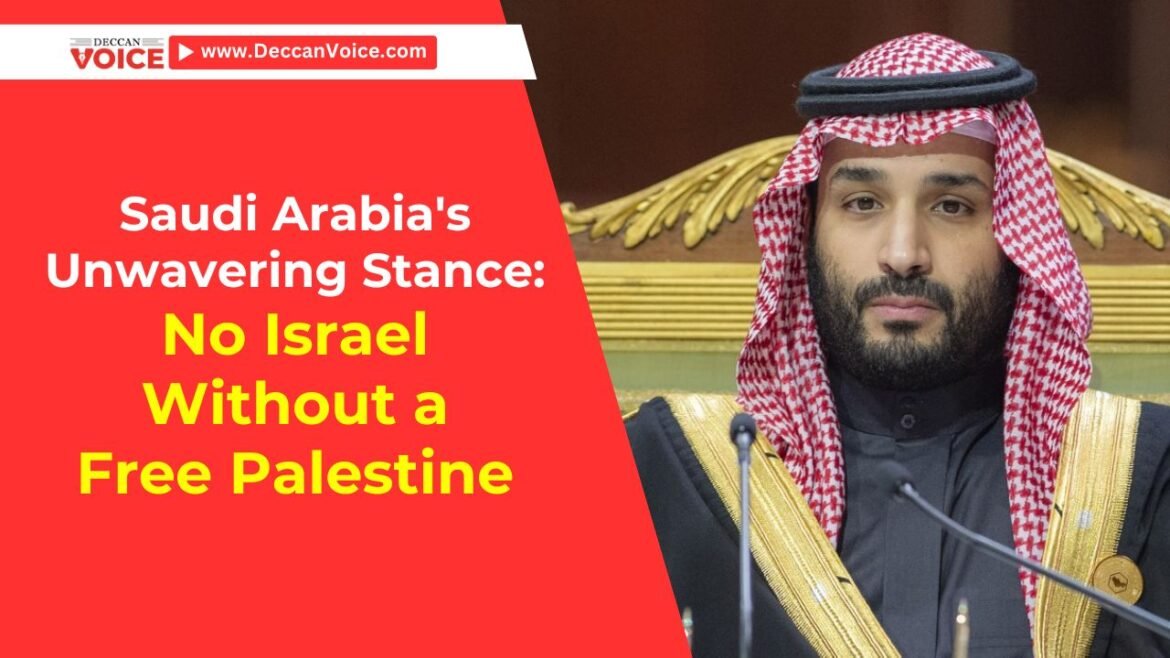Table of Contents
Riyadh, Saudi Arabia – In a period of significant political upheaval across the Middle East, Prince Mohammed Bin Salman (MBS) of Saudi Arabia has articulated a remarkably clear and firm position regarding the recognition of Israel and the establishment of diplomatic ties. His statements lay down non-negotiable conditions, signaling a calculated and principled approach by the Kingdom in navigating the region’s complex dynamics.
Non-Negotiable Conditions for Recognition
Prince Mohammed Bin Salman has unequivocally stated that there can be no recognition of Israel without the prior establishment of a fully independent State of Palestine. A critical component of this demand is that Jerusalem must serve as the capital of this Palestinian state. This condition aligns with long-standing international consensus on the two-state solution and the status of Jerusalem.
Furthermore, MBS has made it clear that diplomatic relations with Israel are contingent upon an immediate halt to what he described as “genocide.” This strong accusation reflects the severe humanitarian crisis and the extensive loss of life in Gaza, which has drawn widespread international condemnation and calls for accountability. The use of such stark language underscores the depth of Saudi Arabia’s concern over the ongoing conflict.
A Calculated Stance in Times of Convulsion
Saudi Arabia’s position, as articulated by its de facto leader, is viewed by many as highly calculated and entirely appropriate given the current political convulsions in the region. Amidst escalated tensions and the ongoing conflict, the Kingdom’s leadership appears to prioritize the rights and plight of the Palestinian people as a prerequisite for any normalization with Israel.
This stance is seen as strategic, allowing Saudi Arabia to maintain its standing within the Arab and Islamic world, where support for the Palestinian cause remains a deeply held sentiment. It differentiates Saudi Arabia from other regional actors who have pursued normalization without these stringent conditions, positioning Riyadh as a steadfast advocate for Palestinian aspirations.
Adherence to International Standards
A core tenet of the Saudi position is the belief that Israel, under current circumstances, is “not worthy to be recognised according to the International standards of law.” This perspective implies that Israel’s actions, particularly those in the Palestinian territories and its conduct during recent conflicts, are viewed as being in violation of international laws and norms.
This framing suggests that for recognition to be legitimate and sustainable, it must be predicated on adherence to international legal frameworks, including those pertaining to occupation, human rights, and the right to self-determination for the Palestinian people. Without such adherence, the Saudi leadership indicates that any diplomatic overtures would lack moral and legal grounding.
Implications for Regional Diplomacy
Prince Mohammed Bin Salman’s firm declaration sets a high bar for any future peace initiatives in the Middle East. It sends a clear message that Saudi Arabia will not sacrifice the Palestinian cause for the sake of broader regional alliances or economic opportunities. Instead, it positions the Kingdom as a key player whose terms must be met for a comprehensive and lasting resolution to the Israeli-Palestinian conflict. This stance is likely to significantly influence future diplomatic efforts and discussions concerning the future of the region.



